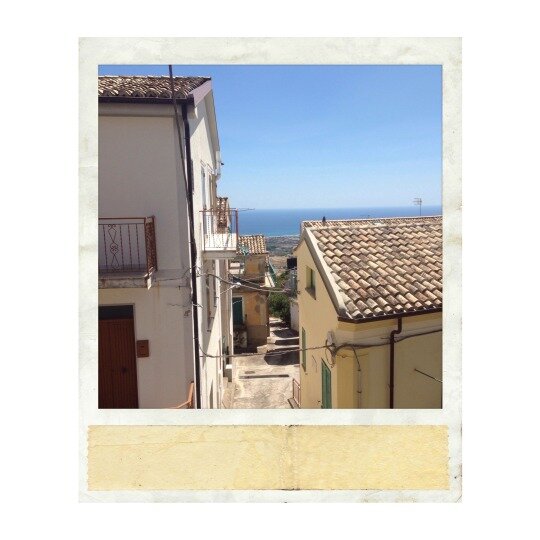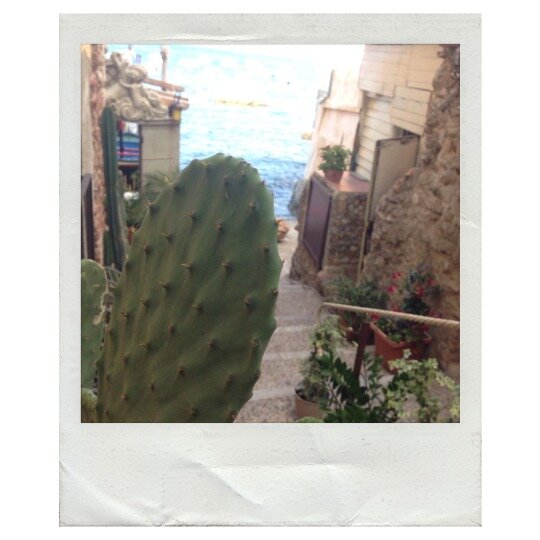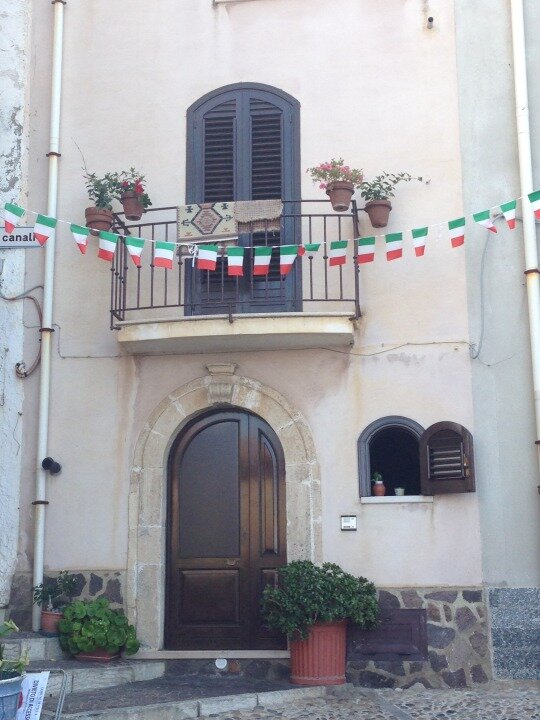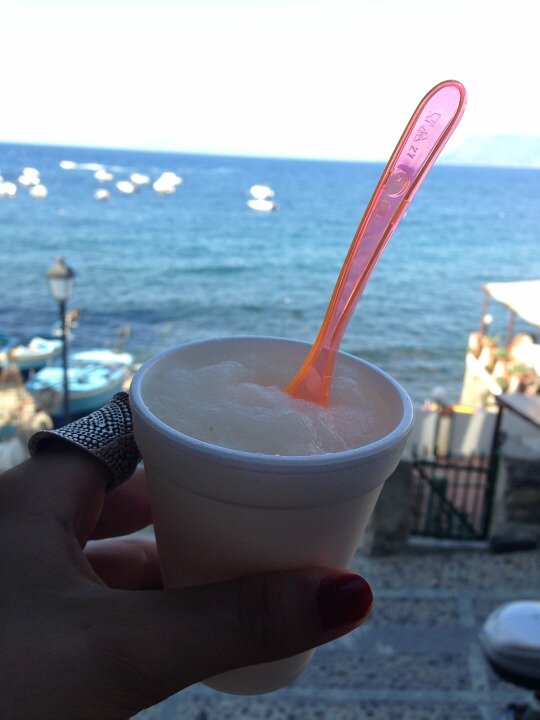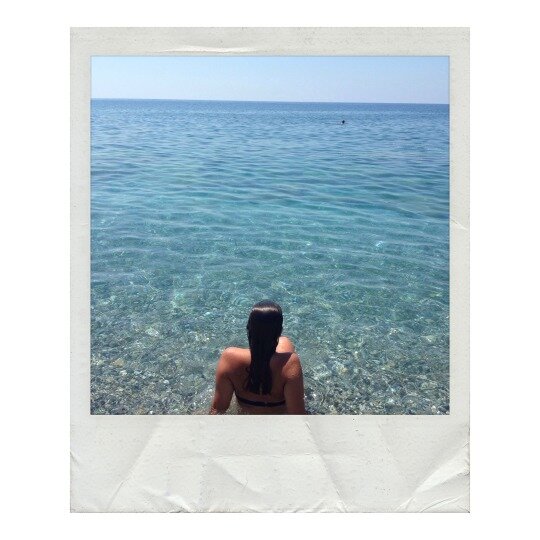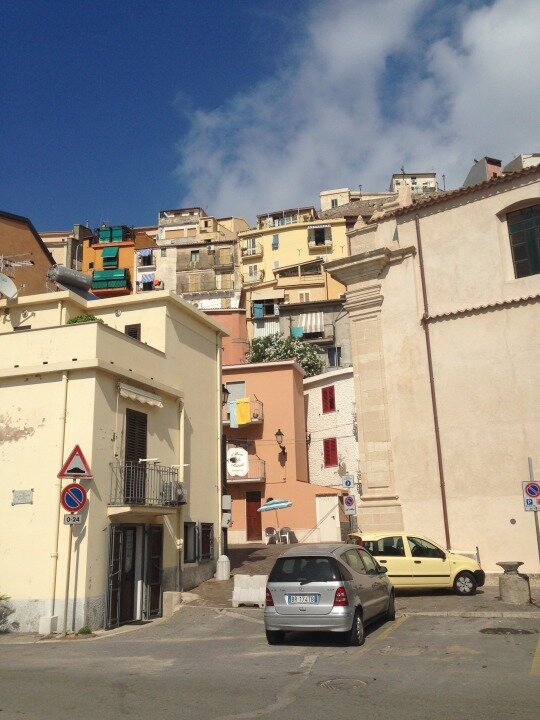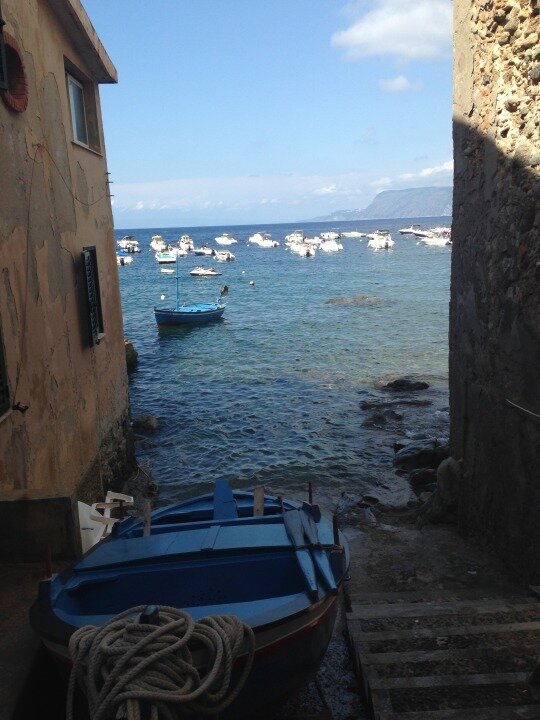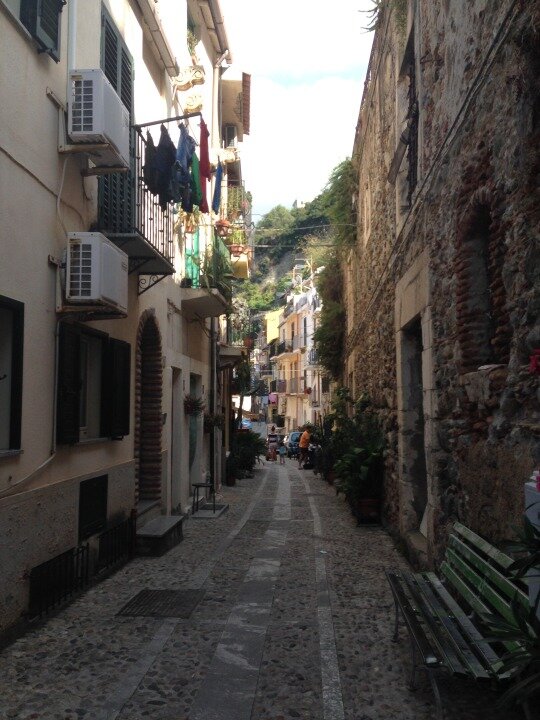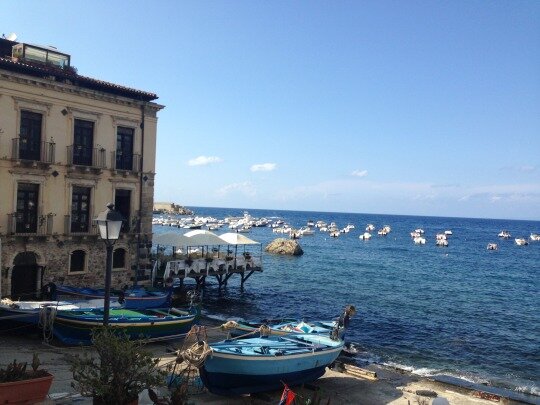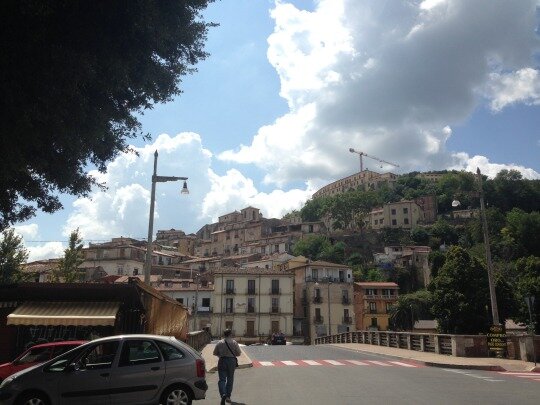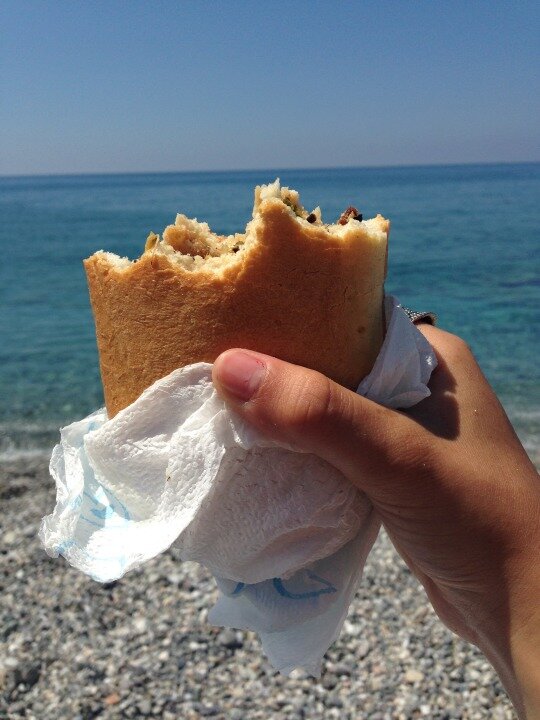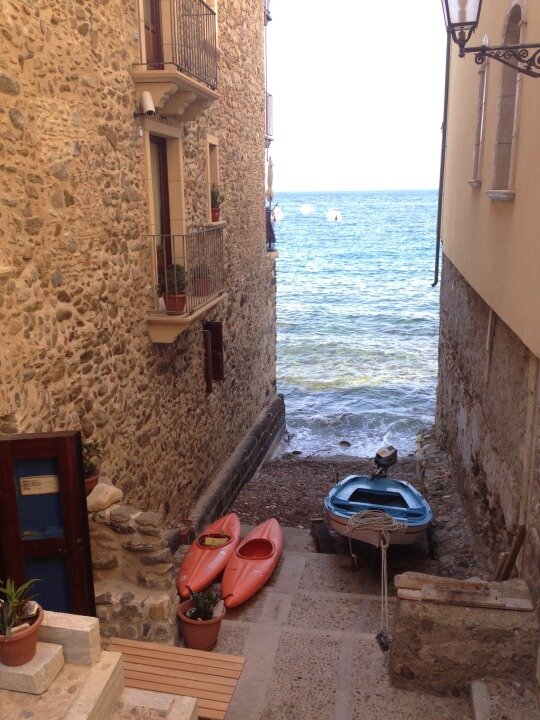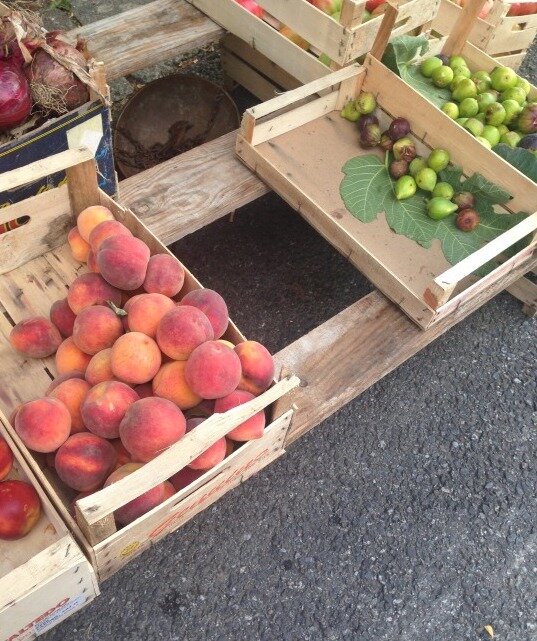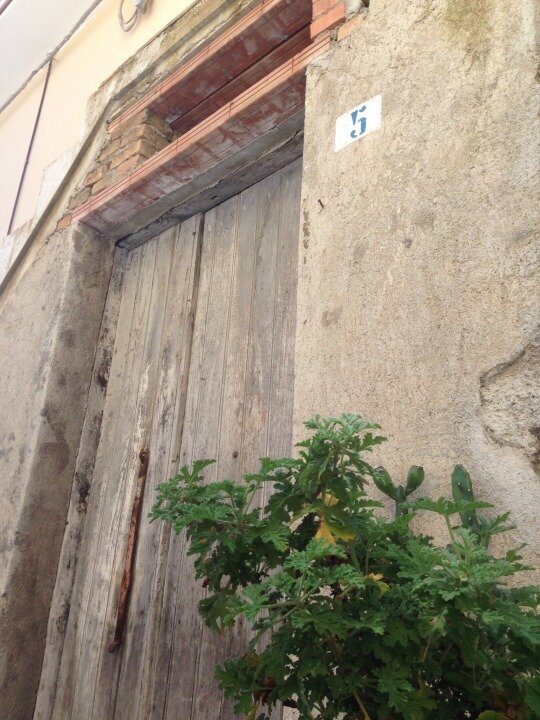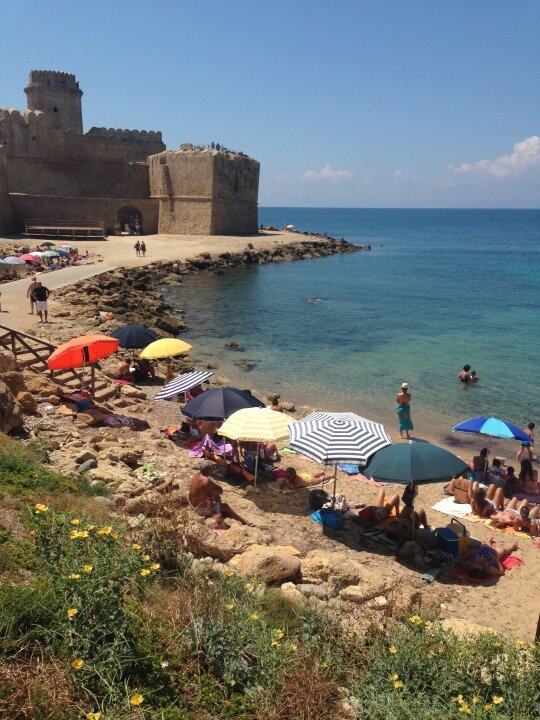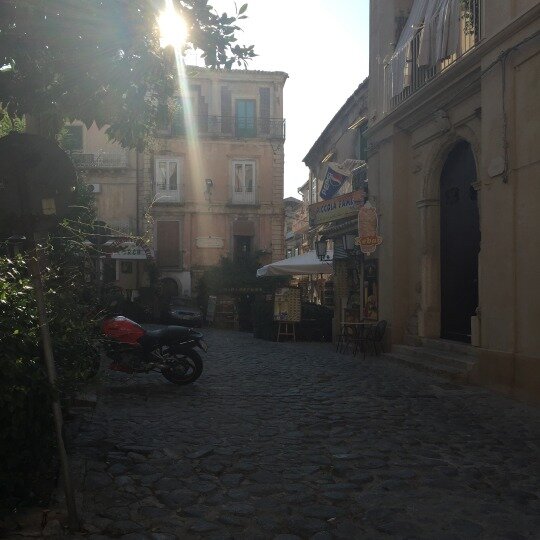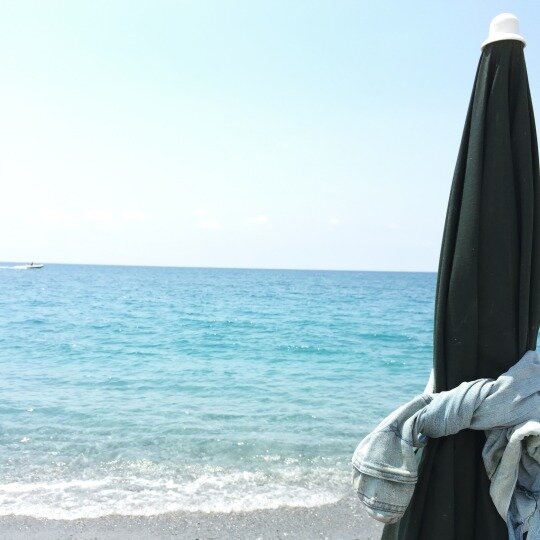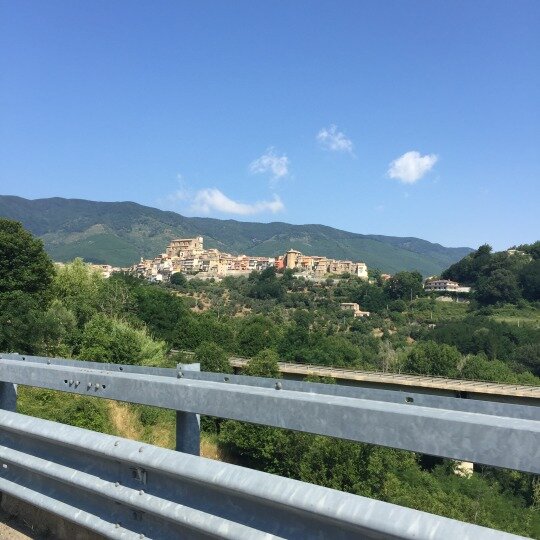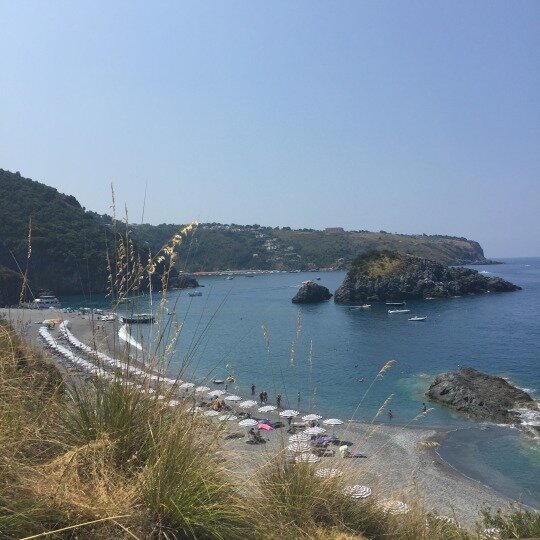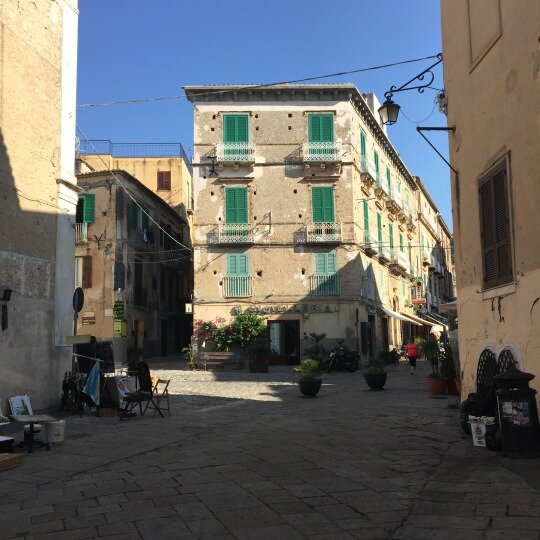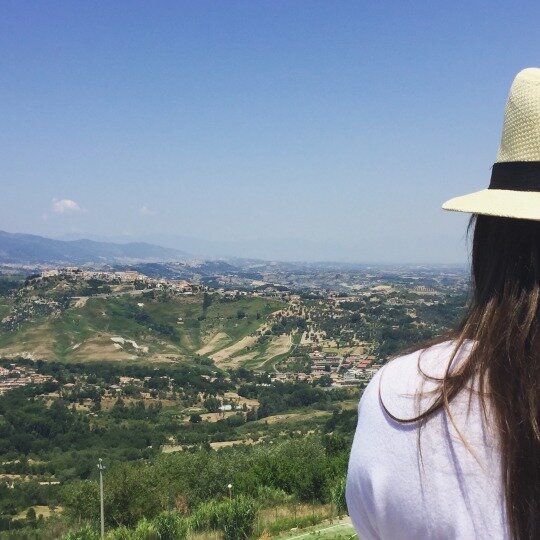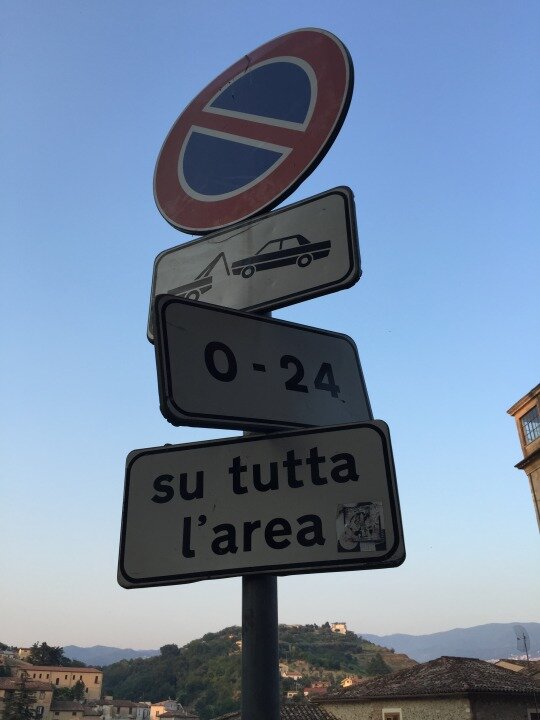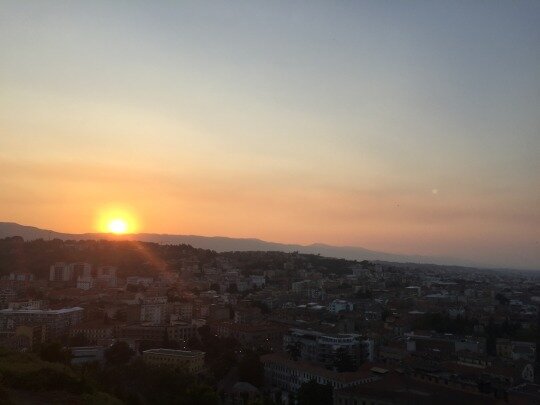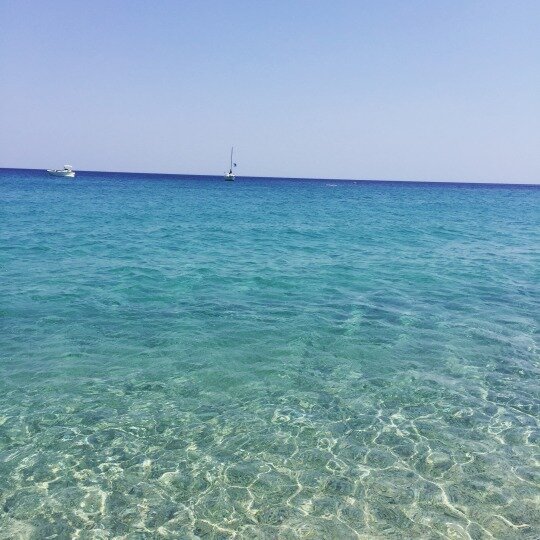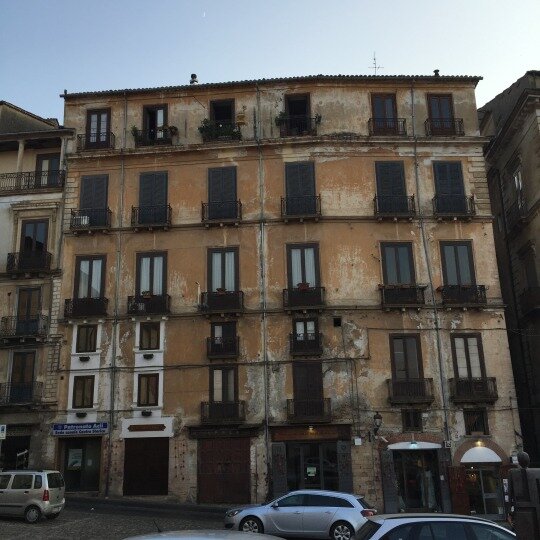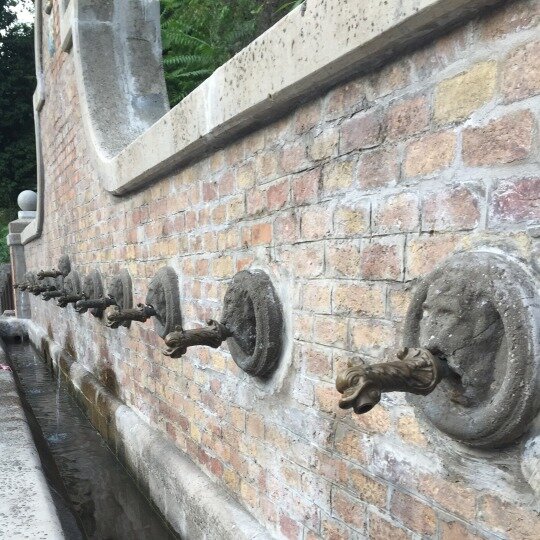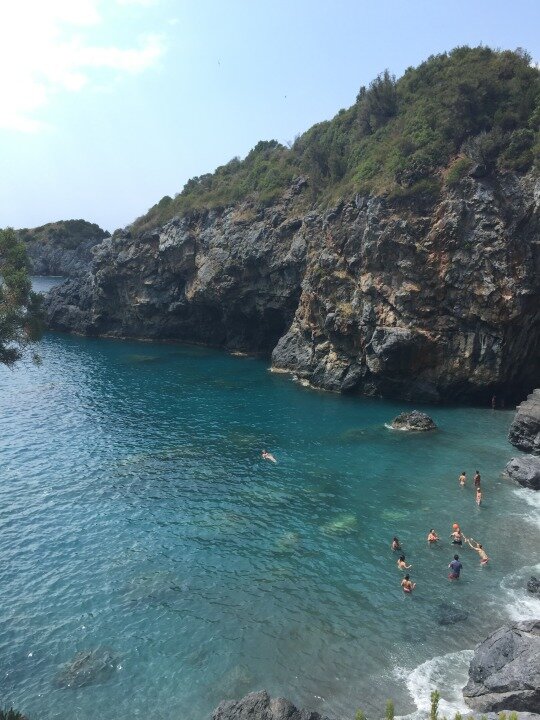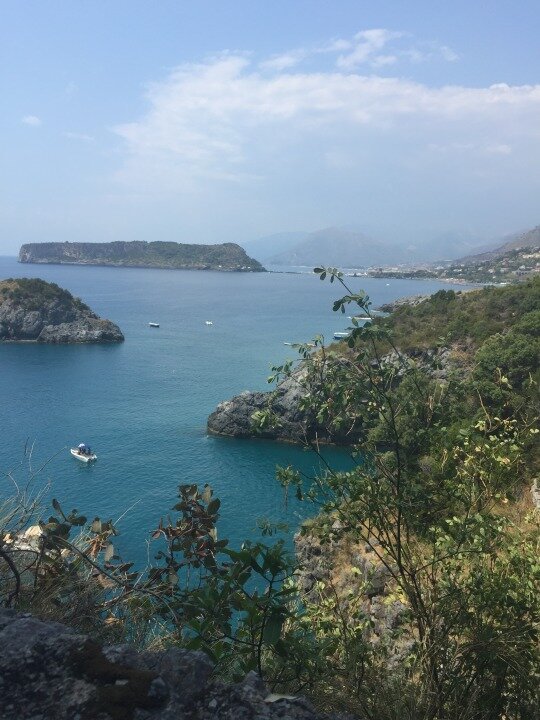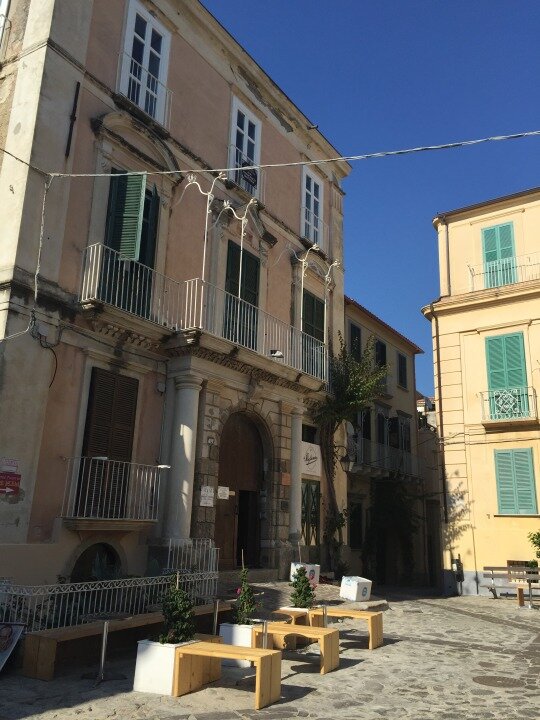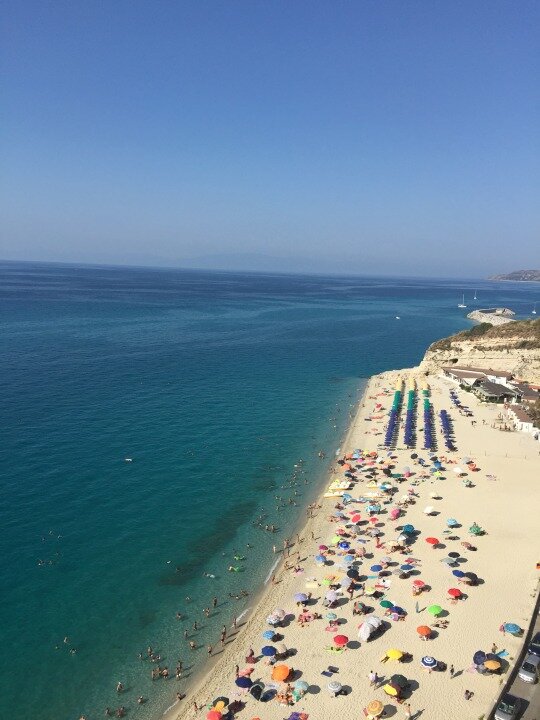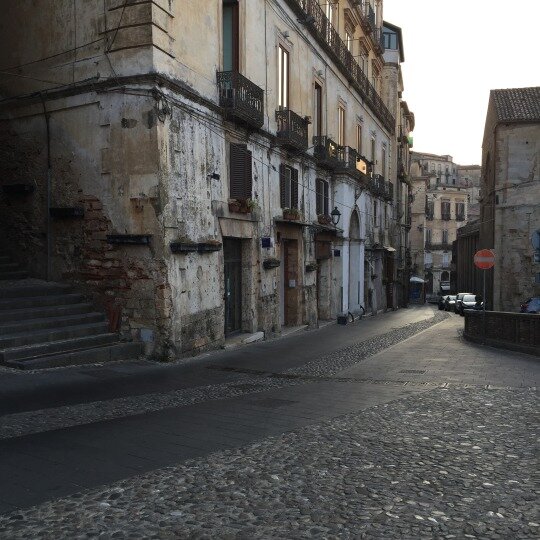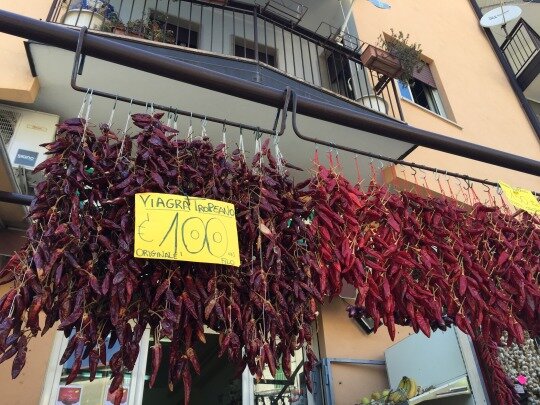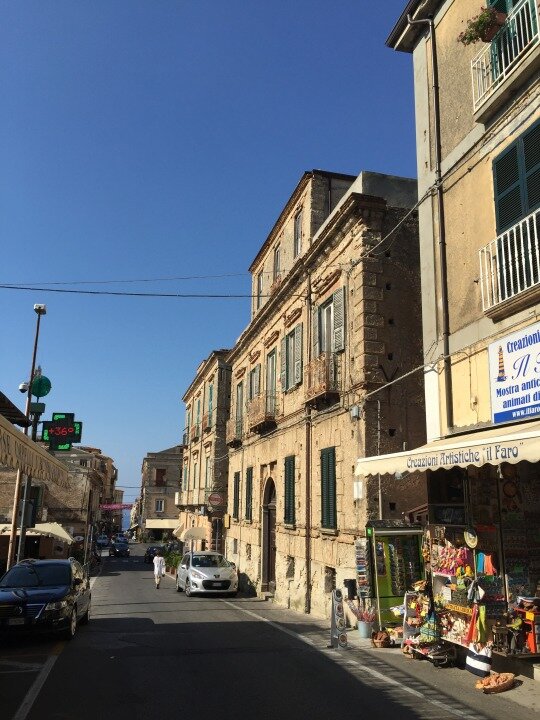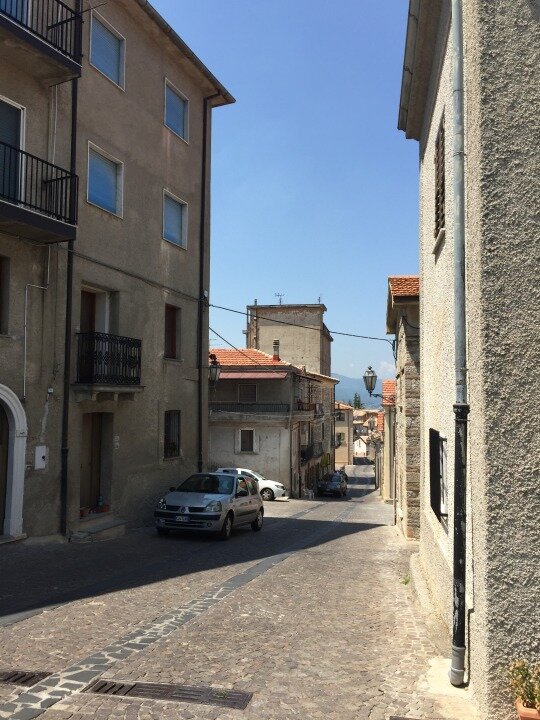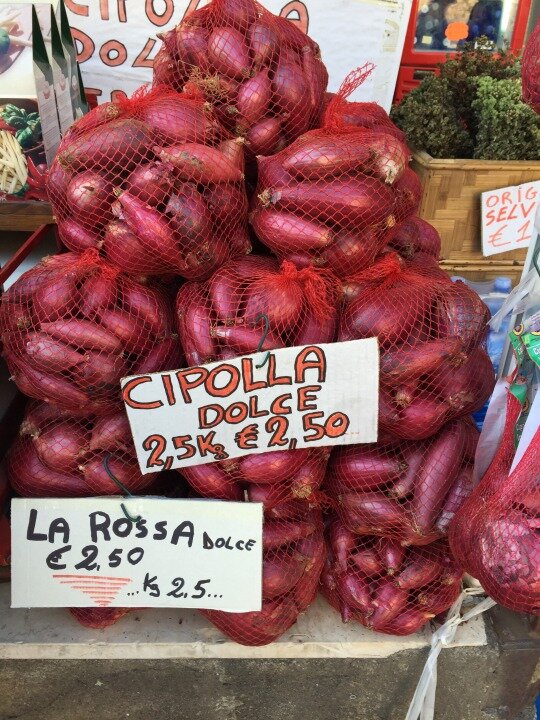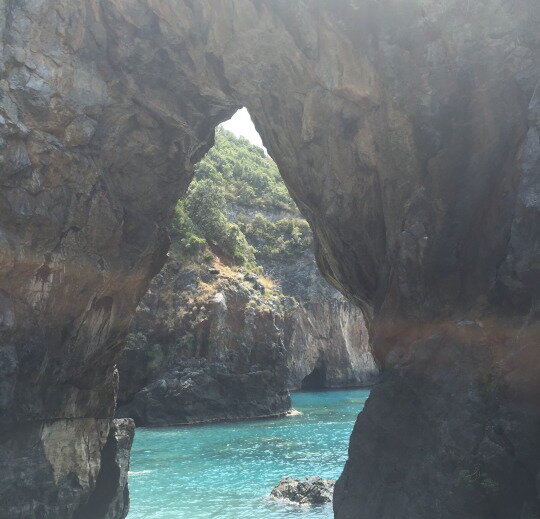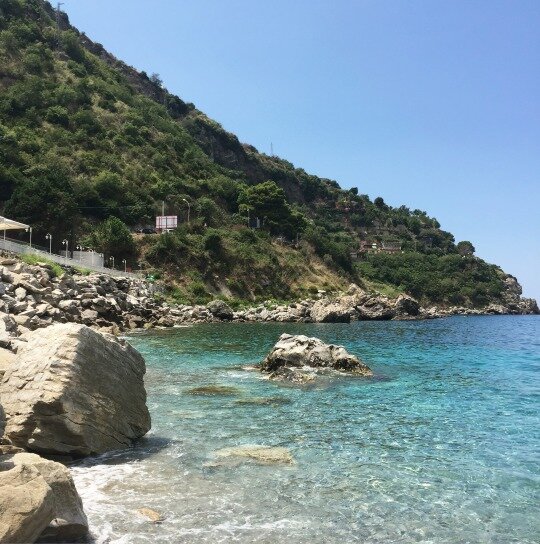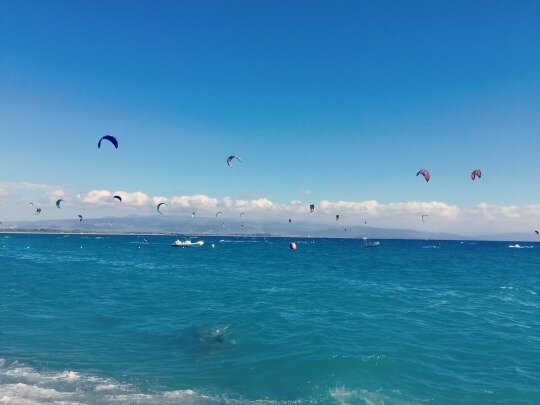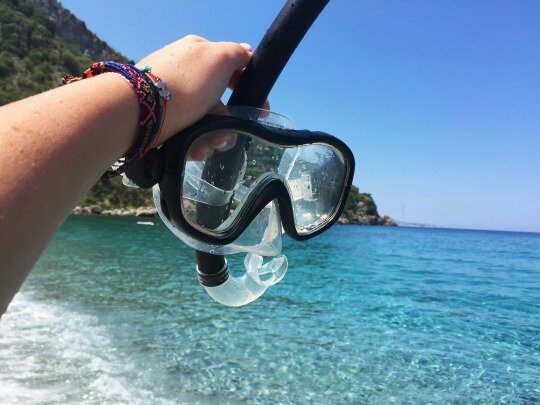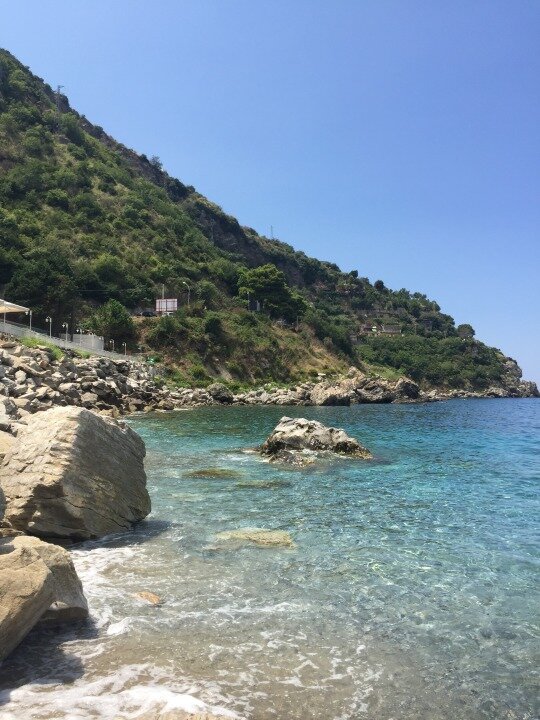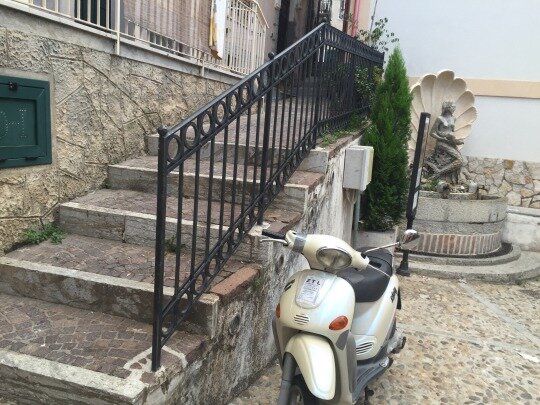Calabria, Unfiltered
My Calabria is a crack in the pavement where something green manages to grow. The spectacular contrast of grace and grit, the delicate and the decrepit living in symbiosis.
Image by David Alfons via Unsplash.
Somewhere in a box in my storage unit, there is an older, more personal version of this blog; a collection of notebooks written by a younger, dreamier version of myself. It contains a collection of diaries from the summer travels through Italy that I took as a teenager, each trip inevitably ending in Calabria, where both of my grandmothers come from. Because of those trips, my experience of Italy, from the gate, was not one of picturesque corners hidden ‘just off the beaten path’ that the travel journals reported, but a place that felt like its very husk and shell.
Calabria has a calloused outer coating. It doesn’t just face the elements, it is the elements – jagged mountains, unfinished roads, tumbling cliffsides, resilient people, ruthless sun, endless sea. These were the conditions that enabled me to start to peel back the rind of who I was becoming to reveal a second skin: a smoother, truer surface that great beauty and great distance from home allowed me to wear on the outside. You could say that more than Canada, more than London, Calabria made me.
Image by David Alfons via Unsplash.
To me Calabria is the rough and the smooth, both soft core and rocky crust. It’s my favourite part of Italy, the toe of the boot where the idyllic hilly interior meets ocean of startling blue on three sides. Surprisingly, it is perhaps the least visited region in the country. I’ve made it my work to think about how Calabria’s abundant heritage and archaeology might play a role in supporting regenerative tourism, which feels rather full circle, because at the core of it all I’ve always thought that even those who don’t have roots in Calabria might experience there what I experienced it years ago: the sense of homecoming and of discovery all at once.
So it’s long overdue that I write this ode to the ripe and rugged region of Calabria, hardly exhaustive because it’s one of those places in which natural beauty, relics of an earlier time, and expressions of culture that feel untouched by the outside world are abound everywhere you look.
One of the obvious pulls of the Italian peninsula is its reputation that it boasts some of the best food on the planet, but there’s a saying which provides more particular guidance: the farther south you go, the better the food gets. It’s in the hillsides, on the coastlines and in the peaks of Calabria that fig and olive trees grow in hundreds, bergamot-scented citrus and the tang of fresh fish fill the air, and mountain potatoes, truffles and oregano can be found. A home vegetable garden, often expertly tended by a generation who have worked the earth for decades, can yield enough zucchini, cucumber and tomato for a whole family for the entire summer. A warm bucket of ricotta on the breakfast table, eggs from the neighbour’s chickens, home-cured meat and fresh bread complete the Calabrian pantry; the ingredients alone are simple, but pure gold in standard, especially when prepared by cooks who know their craft like the back of their sun-spotted hands.
When the homegrown produce and impeccable local products are whipped into one of the region’s quintessential recipes, you’re in for a real treat – pasta with sausage mince, endless salumi platters, a pizza red with oily ‘nduja, a crusty panino filled with salumi and pickled vegetables… I could go on forever, but I know I don’t need to because you’re likely already sold. The overarching quality of Calabrian food is that it’s, for the most part, homemade and homegrown. Calabrians have a knack for making the simplest, cheapest ingredients taste like heaven, perhaps a by-product of the region’s long history of poverty, something for which it is nationally marginalised but worth mentioning for two reasons: firstly because, for better or for worse, a lack of infrastructure and functionality have become jokingly reappropriated within Calabria’s identity, and secondly because necessity is the mother of invention. And let me tell you – these agricultural and gastronomical inventions have yielded meals to be remembered for a lifetime.
Image by Paolo Maniac via Unsplash.
Image by Diego Geraldi via Unsplash.
Served alongside your meal (whatever it is) will likely be an old jam jar filled with homemade oil spiced with pepperoncino, the fiery pepper for which Calabria is known. The pepper closely resembles the red horns that hang from gold chains around locals’ necks and rear-view mirrors to ward off bad luck; a phenomenon known as the malocchio, the evil eye. A sense of superstition is pervasive in Calabrian culture, not at all in opposition to its deep-seated Catholicism but more so as part of it. Often perceived as a sort of Pagan version of Christianity, faith is expressed through re-enactments and rituals of performance that, if you happen to witness a church effigy being paraded through village streets or notice fireworks going off in the middle of the day, you will be able to hear and taste and smell.
The towns in which these great demonstrations of religion and culture take place range from hilltop medieval villages with sweeping views of the mountainsides in which they are etched to coastal villages adjacent to the sea where salt scents the air, to simple residential buildings scattered in the hinterlands between and on the outskirts of the city of Cosenza, the region’s capital. Each municipality is home to a unique local reputation and a subculture distinct from the next: prized red onions are perpetually for sale in the streets of Tropea, gelato made from citron local to Diamante is sold in beachfront bars, centuries-old spearfishing traditions at Scilla are today upheld by bronze-skinned teenagers, a procession of the local statue of Mother Mary through the sea unfolds each August at Marina towns like Gioiosa Ionica. It’s quite fitting that the towns are referred to as paese, a word which directly translates to ‘country’; each one is in some sense a nation entirely of its own.
Image by Razvan Horhat via Unsplash.
Embedded within the layers of nuanced traditions associated with each town are also offensive stereotypes bred, both light-hearted and grave in nature. Though in national and international news Calabria is most often associated with regard the ‘Ndrangheta, the forceful and feared regional branch of the mafia which turns over 35 billion Euros each year, it would be both untrue and an utter shame to report that the phenomena of corruption and crime that are present in Calabria make the region uninhabitable or inhospitable. I in fact believe the opposite to be true; that it is these precise conditions, and the marginalisation that has come with them, that has forged the Calabrian spirit into something tough and simultaneously tender.
So if Calabria is a crack in the pavement where a wildflower somehow manages to grow, Calabrian culture is neither the crack nor the flower, but rather the spectacular contrast of grace and grit, of something delicate and decrepit living in synchronicity. The resilience and stubbornness it takes to grow through and around the jagged edges makes it all the more beautiful.
Calabria is the rock in the toe of Italy’s boot that will persist in making itself known even when it’s inconvenient until it is finally given the attention it deserves, at which point there’s a delightful surprise in store: whomever takes the time to tip over the shoe is bound to discover that the stubborn pebble was a jewel all along.
Recommendations for Calabria
A short list of some favourite corners of this treasured corner of the world. Rent a car, make yourself comfortable with staying in family-run BnBs and humble guest rooms, and pack panini for the ride. Forget everything you think you know about Calabria and prepare to be swept off your feet.
Tyrrhenian Coast
Gizzeria – the coolest beach, literally; there is always a fresh breeze on this part of the coast. Also thanks to the wind, the sky is dotted with countless kites; if you’re into water sports, this is the place!
Diamante – home to azure waters and a charming town to match. Don’t forget to try the citron flavoured gelato.
Amantea, Longobardi, Belmonte, Falerna – a few favourite beach towns along the crystal blue seashore of the Tyrrhenian coast.
Tropea – an iconic town home to a castle perched up on a cliff cutting straight into the sea and unbelievably blue stretches of busy but beautiful beach.
Paola – home to the sanctuary of the eponymous Saint Francesco of Paola, where hundreds have flocked to be miraculously cured of their ailments and where you’re bound to be told a story of cripples who have visited and managed to leave their crutches behind.
Reggio Calabria
Scilla – my favourite spot in the province apart from the village where my grandmother was raised. On the tip of the Calabrian peninsula with Sicily visible just past the Straits of Messina, the winding streets of Scilla, scented with the tang of citrus and fish, either lead up to the crowning hilltop castle or slope down directly into the sea that laps at the ankles of the town.
Ionian Coast
Le Castella – a crystal clear rocky beach perfect for exploring tide pools, with what looks like a real-life sandcastle emerging from the water.
Crotone – A particularly rich spot for history and cultural heritage, with plenty of underwater archaeological sites to dive and discover.
San Nicola Arcella – what appears to be yet another perfect beach, but explore the shore and you’ll find hidden grottos and a hiking trail to a sweeping cliffside view of the ocean.
Sant’Andrea – one of the most underrated and simple but stunning beaches.
Inland
Old Cosenza – slightly inland from the Tyrrhenian coast is the city of Cosenza, home to La Cremeria Vitaro, which serves the best gelato in the world, and a picturesque old district of town that is somewhere between preservation and decay, complete with cobblestone streets and ancient buildings.
Agriturismo Dattilo –a sixteenth century farmhouse and centuries-old olive groves converted to a restaurant and homestay for a unique experience of the natural and cultural ecology of Crotone.
Tour Providers
Travelista73 – an honourary local who has spent decades in the travel industry returns to her roots by offering regular retreats set in Calabria focused on the getting back to the basics: sun, sea, good food, genuine connections and memories to last a lifetime as if you’d made them with your own family.
Riviera e Borghi degli Angeli – a breadth of natural and cultural offerings for every season cumulate in curated experiences along Calabria’s Ionian coast rooted in a slow approach to travel that allows visitors to connect with local families, longstanding traditions and a sense of community that is quintessentially Calabrian. The world needs more offerings like these.





